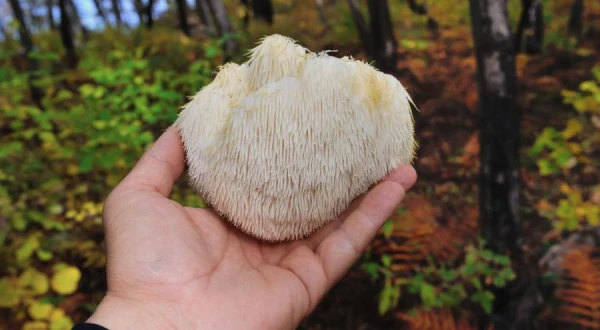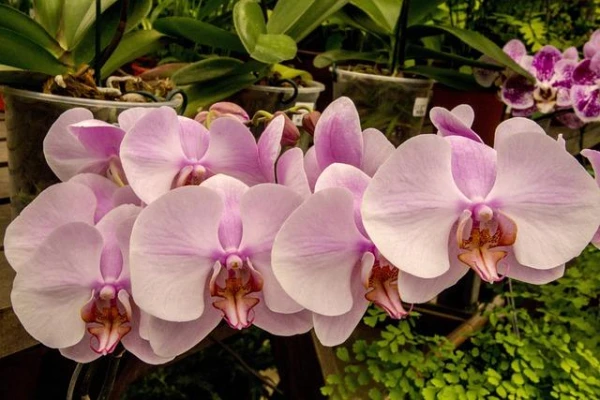
The lion's mane mushroom has gained popularity in recent years: it is actively sought online, widely sold in online stores, and considered one of the best means to improve cognitive functions without the use of medications.
Fighting Alzheimer’s and Depression
Although claims about the miraculous properties of this mushroom may seem like a marketing ploy (and in some cases, they really are), it does possess unique properties. This is confirmed by numerous studies and expert opinions. Research is being conducted, albeit on small groups of people or animals, but the results look promising.
For example, studies conducted in China found that consuming the mushroom helps protect the brain from Alzheimer’s disease—a neurodegenerative condition that leads to progressive memory loss.
Scientists discovered that lion's mane (or “lion's mane” in a literal translation from English) reduces memory loss symptoms in mice and prevents neuron damage caused by beta-amyloid plaques that accumulate in the brain in Alzheimer’s disease.
A study conducted in 2020 involving people suffering from Alzheimer’s showed that daily intake of 1 gram of mushroom mycelium (a 350 mg capsule containing 5 mg/g of the active substance erinacine A) over 49 weeks significantly improved cognitive test results compared to a control group taking a placebo.
Other studies on mice found that consuming the mushroom may reduce symptoms of depression and anxiety. Scientists concluded that the mushroom extract has anti-inflammatory effects, which ultimately helps cope with mental disorders.
Additional animal studies showed that lion's mane extract may promote brain cell regeneration and improve the functioning of the hippocampus—the area of the brain responsible for processing memories and emotional responses. Researchers believe that the improvement in hippocampal function explains the reduction in anxious and depressive behavior in mice.
Additional Benefits of Lion's Mane
In addition to the above, some studies conclude that lion's mane may fight cancer, alleviate diabetes symptoms, and reduce oxidative stress levels in the body. Several animal studies have shown that lion's mane extract reduces markers of inflammation and oxidative stress in rodents and may be particularly beneficial in treating inflammatory bowel diseases, liver damage, and stroke. A 2012 study examining the antioxidant activity of 14 different mushroom species found that lion's mane ranked fourth in this regard and is recommended as a source of antioxidants.
In in vitro studies, scientists observed that when lion's mane extract was mixed with human cancer cells, the latter died faster than usual. This effect was confirmed in several types of cancer cells, including breast, stomach, and blood cancer cells. However, it is worth noting that one older study examining skin cancer cells failed to reproduce these results.
Does Lion's Mane Really Improve Brain Function?
“This is indeed a finding of the last 10–15 years, in terms of modern science, and for producers and consumers, the last 5–10 years,” says renowned mycologist Mikhail Vishnevsky.
“The main activity of lion's mane is anti-cancer and nootropic. It improves cognitive functions, broadly affects the nervous system, but its effects are not limited to this. It has reparative effects. That is, if there is damage to the nervous system, it can restore it and literally heal nerve fibers on a physical level—up to 1 cm in length,” the mycologist explains. The study that led to such conclusions was conducted on rats.
“Lion's mane copes well with all memory-related issues: memory loss, Parkinson’s disease, and Alzheimer’s disease. This mushroom is capable of restoring the myelin sheath of nerve fibers. It often induces vivid colorful dreams and has a mild nootropic effect,” adds Mikhail Vishnevsky.
Nootropics are a group of substances that, according to their manufacturers, stimulate mental activity, activate cognitive functions, improve memory, and enhance learning ability. Various nootropics are used in the former CIS countries; however, in the USA and Western Europe, official medicine does not use them. Medical authorities in these countries believe that the effectiveness of nootropics has not been proven.
Nevertheless, in the case of lion's mane, its nootropic effect is consistently confirmed by a number of studies, as is its ability to restore cognitive functions. It is also important which part of the mushroom we consume. Most products available on the market will not provide the desired effect, as they either contain the wrong part of the lion's mane or too little of it.
Vishnevsky emphasizes that the action of lion's mane varies depending on the part of the mushroom. Thus, mycelium acts more as a nootropic, while fruiting bodies are more effective as an anti-cancer agent, pain reliever, and for improving gastrointestinal function. According to him, to achieve maximum effect, it is better to consume a mixture of mycelium and fruiting body. At the same time, the mushroom must be properly cultivated.
“Among those who sell mycelium, the overwhelming majority offer so-called ‘grain mycelium.’ When the mycelium is grown on grain, they are essentially selling bread,” Vishnevsky explains. According to him, the content of mycelium in such a product is about 1/10 of the part, and to achieve a noticeable effect, one would need to consume a lot of such a product. Accordingly, this would be expensive and difficult—who would like to eat 30–40 grams of dietary supplements a day? Therefore, when choosing lion's mane supplements, it is important to pay attention to the method of its cultivation and which part of the mushroom is contained in them.
According to the expert mycologist, no side effects from taking lion's mane have been observed. “It [lion's mane] has undergone serious clinical safety studies—both the aqueous extract and the mycelium and fruiting bodies,” notes Vishnevsky. “In the studies, one case of allergic contact dermatitis and one case of acute respiratory failure were recorded.” However, all these cases are related to allergic reactions and occur rarely, says the mycologist.
Why is Lion's Mane Not Included in Medicines?
Why, if lion's mane is indeed effective, is it not yet used by official medicine? According to Vishnevsky, mushrooms are just beginning their journey into official medicine, and it will take several years for their integration. “Mushrooms like chaga or reishi are already included in second-line drugs for various diseases. Regarding other mushrooms, research only began 10 years ago, and to include them in pharmaceutical preparations, another 3–5 years is needed.” Therefore, mushrooms are used in the form of dietary supplements, which are not officially considered medicines.
In Vishnevsky’s opinion, it is unlikely that lion's mane will be used in medicinal preparations, as its cultivation is quite expensive. At the same time, in terms of its properties, it is similar to many other nootropics, the molecules of which are synthesized artificially and are cheaper.
Among pharmaceutical companies, there is currently a divergence of paths, notes the mycologist. “There is classic ‘big pharma,’ and there are young doctors who understand that besides working with pure molecules [substances], one can also work with extracts, infusions, and mixtures—and all of this can also be statistically processed and verified,” he says. Currently, according to the mycologist, such preparations are beginning to appear.
Can Lion's Mane Be Grown Independently?
Various kits for independent mushroom cultivation, including lion's mane, can be found online. According to Vishnevsky, even with the growing popularity of the mushroom, this will remain a niche activity that few are interested in—much like growing kombucha or herbs on a windowsill. At the same time, unlike them, lion's mane in such kits can only yield one harvest—meaning it is a one-time kit. “It is much cheaper to buy a ready-made product,” says the mycologist.
Lion's mane is undoubtedly an interesting and promising product that deserves the attention of biohackers and anyone looking to improve brain function. However, it should be remembered that dietary supplements are not medicines and cannot treat diseases. They are not recommended for pregnant women or those planning pregnancy, as well as nursing mothers—unless after consulting a doctor. Additionally, lion's mane should not be consumed simultaneously with antidepressants, selective norepinephrine and dopamine reuptake inhibitors. If you are experiencing cognitive and mental disorders, difficulties in brain function, it is better to consult a doctor—a neurologist or psychiatrist.















Leave a comment